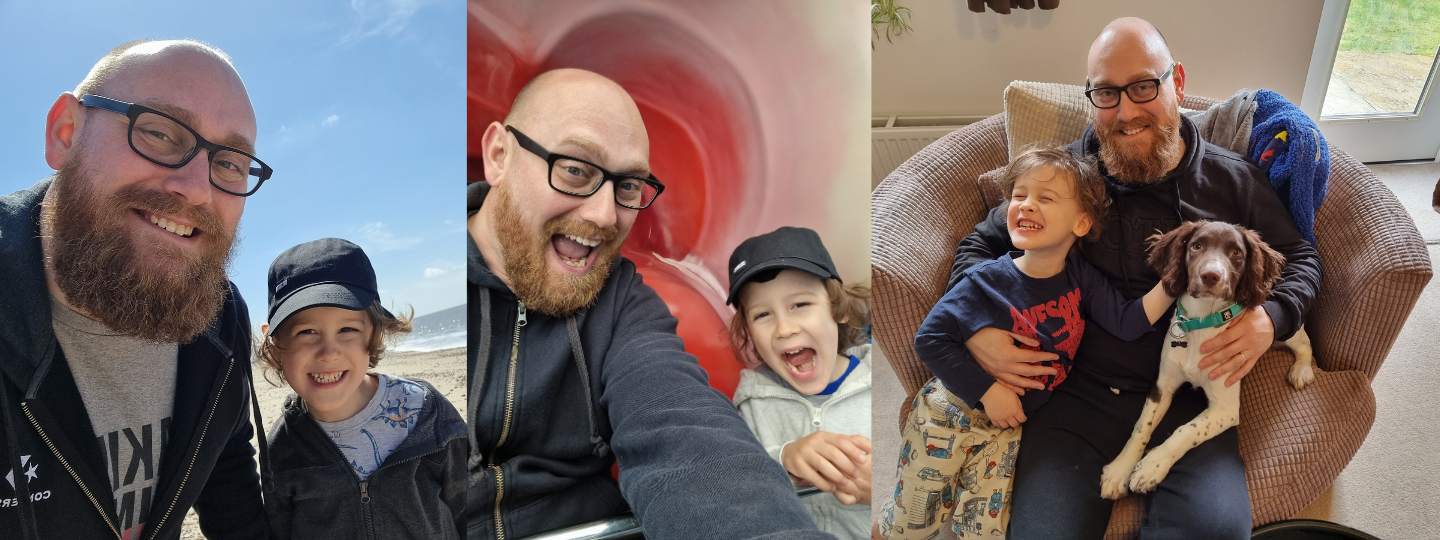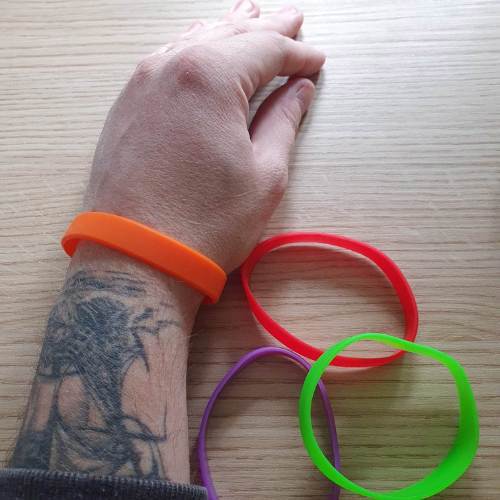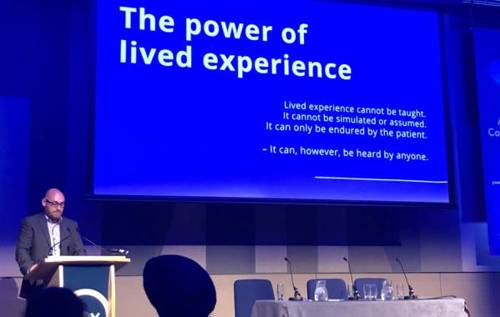Mental health and arthritis: How Joel copes emotionally with pain and fatigue
25 May 2023
Joel, 38, was diagnosed juvenile idiopathic arthritis (JIA) as a child, and later was diagnosed with psoriatic arthritis.
In his eyes, “the mental side of this condition is worse than the pain”. But over time, he’s found ways to cope – from having open conversations about how he’s feeling to helping others through his advocacy work.
Looking after your mental health if you have arthritis
Here Joel shares his tips for looking after your mental health and shines a spotlight on the support that’s available:
Talk about how you’re feeling

It can be tempting to bottle up your feelings. But Joel says it’s important to chat about what you're going through.
“I’m always the first to try and talk about mental health,” says Joel. “I think, especially for men, there just isn’t enough people talking about it.
"It's important to know when to ask for help. Be aware of your support network and don’t be afraid to put your hand up if you need it."
To help start the conversation about his mental health, Joel will sometimes wear coloured bracelets to show how he’s feeling.
“I had a purple wristband that I wore for my mental health,” Joel explains. “My wife and son knew that if I wore the purple bracelet, I was going to be quiet and maybe a little sad. That really helped when I didn’t want to keep having that conversation.”
Speak to your healthcare professional
Doctors might presume that managing your pain is your top priority. But there might be other worries on your mind.
“A lot of doctors ask all about the pain,” Joel explains. " They say ‘where and how much does it hurt?’.” But, for Joel, “it’s important, that we talk more about mental side of [arthritis]. It affects me massively."
“If it’s affecting your job or your relationships, tell them. Let them know what your priorities are."
Social prescribing
Everyone needs support from time to time. So, if you’re feeling low or anxious, your doctor may be able to refer you to social prescribing services. These are local activities, groups and services that might help to improve your health and wellbeing, including:
- Pain management clinics
- Physical activity programmes
- Befriending or peer-to-peer services
- Gardening services
“I got support from employment services, peer support groups and walking groups,” Joel says. “There’s also a pain management clinic less than three miles from my house. That changed everything.”
Distraction
Joel recently attended a pain management clinic which taught him skills to help him better cope with pain emotionally. “For me, it’s all about distraction and occupying my mind,” he says.
To help distract himself, Joel created a support group where they play Minecraft together. “For a couple of hours, we’ll forget whatever were struggling with,” he says.
Pacing yourself
To avoid burning out, Joel uses pacing, which is all about conserving energy. “Now I know when to take a break,” Joel says. “I've tried to stop doing the boom-and-bust cycle.
"Of course, I don't always get it right, but I try and make that one good day into two or three decent days. Flatten the curve. It's an ongoing cycle."
Mindful meditation
Meditation can be a relaxing way to unwind and quieten the mind – and Joel finds it really useful. “This afternoon, I was struggling and tired. It got a little overwhelming,” Joel explains. “I laid on the bed and put a meditation playlist on.”
"It's not something I would have entertained five years ago. I sometimes find myself smiling as I do it and saying to myself, 'This is wild. It actually works!' I have my incredible Pain Management Team to thank for changing my thinking and what I was willing to accept as part of my 'pain toolkit'."
Letting go of blame and anger
When dealing with long-term pain, it’s natural to feel angry and to want someone to blame. But Joel says that holding on to these feelings won't help in the long run.
Joel remembers how he was “so hung up on a treatment change” which happened at the same time his son was born, which led to a flare-up.
"An occupational therapist gave me the talk I needed,” he says. “They said, ‘stop trying to find someone to blame and get on with living your life’. It wasn't until I accepted that, then other stuff started working for me. I can now move forward.”
Advocacy

Joel says when he was in a difficult place, his wife encouraged him to start writing – and this sparked the beginning of his advocacy journey.
Advocacy is all about shining a spotlight on causes that matters to you. For Joel, this means raising awareness of his condition and the challenges people with arthritis face.
“When I'm really struggling, the first thing I will do is turn the computer on and write an article, create a social media post or podcast,” he says.
“It's such a powerful thing to find your voice. it's an even more powerful thing when you receive a message that says, ‘I thought it was just me that felt like that’.
“It gets me out of bed in the morning, gives me a purpose and gives me some control in a world where it sometimes feels like very little is within my control.”
“Helping others helps me manage my condition. It’s my therapy and it helps me get through the day.”
We’re here whenever you need us
If you're struggling, remember you're not alone.
- If you need advice or support, you can call our free helpline on 0800 5200 520
- Chat to our Arthritis Virtual Assistant
- Join our online community
- Stay in touch and follow us on Twitter, Facebook and Instagram